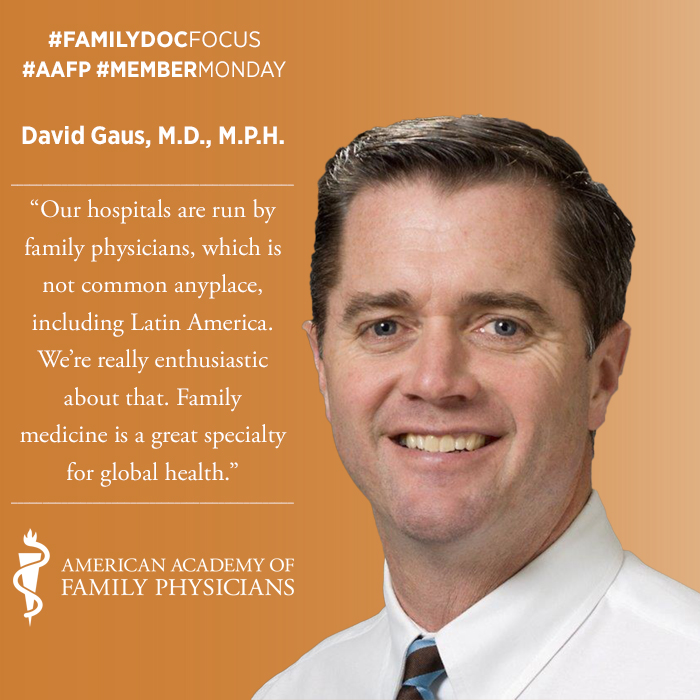Starting a Rural Health System From Scratch
March 12, 2018, 10:55 am David Mitchell – David Gaus, M.D., M.P.H., was finishing his degree in accounting at the University of Notre Dame when he had an unsettling realization.

"I didn't want to be an accountant," he said. "I had my mid-life crisis as a college senior."
Gaus spent the next two years volunteering at an orphanage in Ecuador. That experience inspired him to come home for medical school and residency, but his desire to help the people of Ecuador ultimately drew him back to that country.
"I thought it was going to be primary care prevention and promotion," he said, "but I discovered that patients who were already sick had nowhere to go. There was no rural hospital."
When residents of the town of Pedro Vicente Maldonado had an acute illness, they had to take a three-hour bus ride through mountains to reach Quito, the capital city, for care. So, working with the Rev. Theodore Hesburgh, the former Notre Dame president, Gaus founded Andean Health & Development in 1997. The organization opened its first hospital, a 17-bed facility in Pedro Vicente Maldonado, in 2000. By 2007, the hospital was self-sustaining.
Gaus also discovered that physicians trained in Ecuador's cities didn't connect with rural patients, so Andean Health opened the country's first rural family medicine residency program in 2008. It serves the Pedro Vicente Maldonado hospital, the system's clinics and a second hospital that opened in Santo Domingo in 2014. The program has graduated an average of 10 residents per year since 2011.
According to Gaus, one of the challenges of starting a health system from scratch in rural Latin America was building trust.
"Hospitals were thought of as cold, dark, dirty places you went to die," he said. "The first step was to get people to trust and use the hospital. We spent a lot of time building that trust."
Twenty years into its mission, Andean Health has served more than 250,000 patients and delivered more than 4,200 babies.
Gaus' next endeavor is the Andean Health Institute, which he said will measure the system's work, partner with universities to research public health threats in Ecuador, and seek to influence policy and establish itself as a thought leader. The organization already has started a Spanish language medical journal and published a Spanish language clinical manual for rural family medicine.
Gaus said Andean Health could be used as a model to help the underserved in other parts of Latin America.
"Our hospitals are run by family physicians, which is not common anyplace, including Latin America," he said. "We're really enthusiastic about that. Family medicine is great specialty for global health."